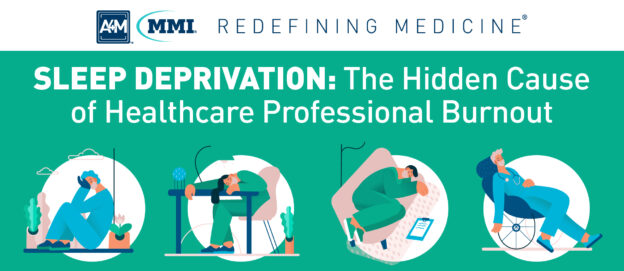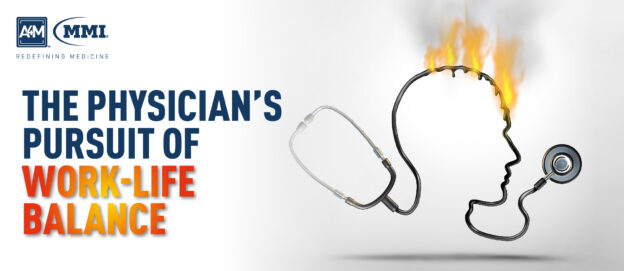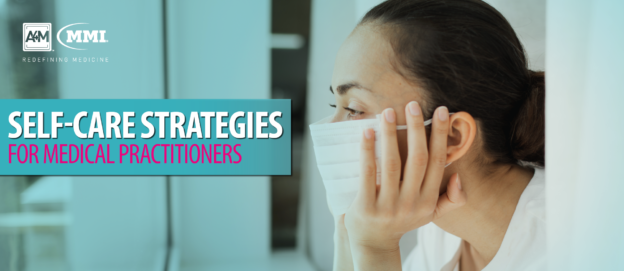As the population enters another month of social distancing and self-isolation in an effort to combat the COVID-19 outbreak, it is becoming increasingly important for individuals to prioritize their physical, mental, and emotional health. The so-called “new normal” many find themselves living in has been characterized by heightened stress levels, long work hours, increased feelings of loneliness and hopelessness, as well as a persisting need to support and care for loved ones. During such an overwhelming time, it is important to take the necessary self-care measures that can work to mitigate negative emotional and physical responses to the pandemic – many of which may be happening subconsciously.
Both deteriorating physical and mental health can impede the ability to provide much-needed medical and home care, give and receive support, and to fulfill the needs of a growing number of patients. Whether you are one of the healthcare providers braving the crisis and fighting the virus on the front lines, a first-time telemedicine practitioner, or a medical professional with a practice currently closed, it is essential to take the time to incorporate some of the self-care strategies listed below when possible.
Self-Care Strategies
Boosting both physical and mental health requires regular check-ins throughout the day. Make sure to check in not only with your family and friends, but equally as importantly with yourself – how are you feeling physically, mentally, and emotionally? Paying attention to your current state will help identify what you may need at that moment, whether that is a walk around the neighborhood, a nutritious meal, or some physical exercise. The recommendations below are simple to incorporate into a daily routine yet may prove tremendously effective in improving overall wellbeing.
Physical Health
Supporting physical health is vital to ensure a well-functioning immune system and to protect it from the risk of COVID-19 infection. Several ways to maintain a healthy lifestyle despite the circumstances – inclusive of regular physical activity and a well-balanced diet – are listed below:
• Maintain a sleeping schedule and get enough rest; aim to sleep for around 7 to 8 hours per night.
• Engage in physical activity every day – this can include walks around the block, jogging, or exercising at home.
• Spend time outside (following social distancing guidelines) and in nature; studies have found that being outdoors is one of the quickest methods of improving health and wellbeing.
• Eat regularly and fuel your body with a healthy, nutritious diet.
• Make sure to hydrate as dehydration can have noxious effects on physical health; aim for about 2 liters of water per day.
• Avoid substance use and destructive behaviors; abusing alcohol or drugs at this time may worsen both physical and mental health, take a toll on the immune system, and lead to other repercussions.
Mental Health
Taking care of your mental health is equally as important; the heightened stress levels and rising feelings of loneliness can contribute to declines in immune system functioning as a result of related hormonal changes.
• Find ways to connect with yourself and those around you – this can include regular phone or video calls, communicating throughout the day, and mindful personal check-ins.
• Set a routine and try to maintain it; devoting specific times of the day to work, chores, home life, and self-care can help provide much-needed structure.
• Instead of worrying about the public health crisis at hand, focus on things you can control, including work-related tasks, healthy lifestyle habits, and time spent connecting with the people around you.
• Consider introducing relaxation techniques throughout the day, such as deep breathing, stretching, meditation, and yoga practice.
• Use technology mindfully; many individuals are increasingly turning to social media, television, and their computers as a way of spending idle time. While it is needed to maintain social interactions and continue business operations, the amount of unnecessary time spent in front of a screen should be minimized.
• Listen to music, read books, and pursue other stimulating activities instead.
• Explore online resources and applications for managing anxiety and other mental health concerns at this time; the CDC has compiled a list of helpful coping strategies, accessible here.
To be best equipped to provide health care and other support services, medical practitioners must prioritize their physical health and emotional wellbeing, which can be extremely difficult for those working within the healthcare system. While the consistent efforts of healthcare practitioners of all backgrounds are invaluable, the demands of the oft-dysfunctional healthcare system can take a significant toll on their physical and mental health. Many are struggling with traumatic stress responses or battling the infection themselves. As integral members of our shared communities, medical workers are encouraged to remember that they are not alone and to seek the therapeutic support and medical care they need.
Regardless of specialty, finding the time to practice self-care is now more important than ever; introducing some of the above strategies into your daily routine can significantly improve overall health and wellbeing. Additional recommendations, including specific tips for first responders and health care providers, have been made available by the CDC and can be found here.
If you or someone you know is considering suicide please contact the National Suicide Prevention Hotline at 1-800-273-8255 or through chat on https://suicidepreventionlifeline.org/



